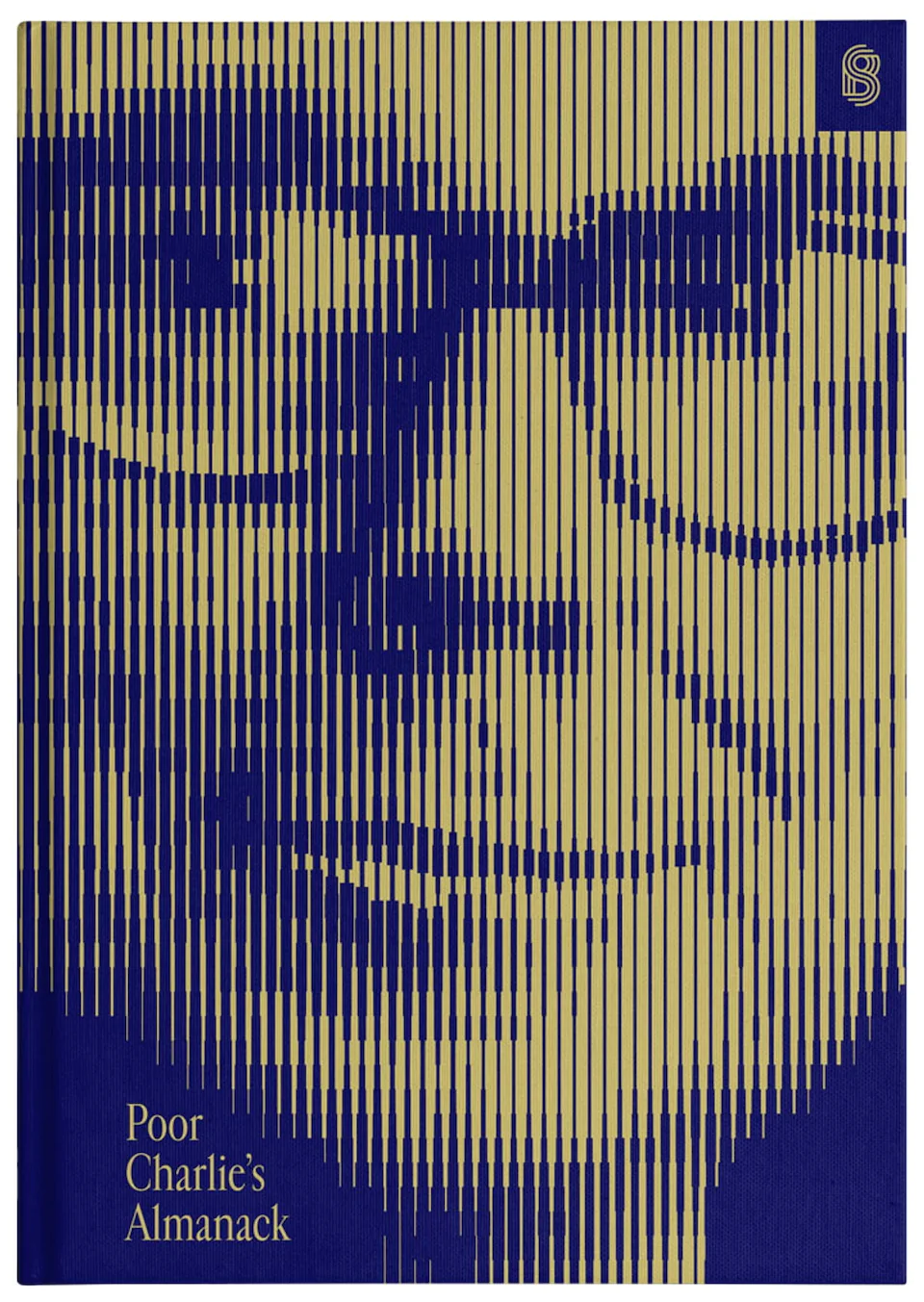Poor Charlie's Almanack: The Essential Wit and Wisdom of Charles T. Munger
by Charles T. Munger
Added:
2024 Mar 31
Description
From the legendary vice-chairman of Berkshire Hathaway, lessons in investment strategy, philanthropy, and living a rational and ethical life.
Spend each day trying to be a little wiser than you were when you woke up, Charles T. Munger advises in Poor Charlie’s Almanack. Originally published in 2005, this compendium of eleven talks delivered by the legendary Berkshire Hathaway vice-chairman between 1986 and 2007 has become a touchstone for a generation of investors and entrepreneurs seeking to absorb the enduring wit and wisdom of one of the great minds of the 20th and 21st centuries.
Edited by Peter D. Kaufman, chairman and CEO of Glenair and longtime friend of Charlie Munger - whom he calls “this generation’s answer to Benjamin Franklin” - this abridged Stripe Press edition of Poor Charlie’s Almanack features a brand-new foreword by Stripe cofounder John Collison.
Poor Charlie’s Almanack draws on Munger’s encyclopedic knowledge of business, finance, history, philosophy, physics, and ethics - and more besides - to introduce the latticework of mental models that underpin his rational and rigorous approach to life, learning, and decision-making. Delivered with Munger’s characteristic sharp wit and rhetorical flair, it is an essential volume for any reader seeking to go to bed a little wiser than when they woke up.
Notes & Highlights
Chapter 3
As we’ve noted, Charlie doesn’t make a lot of investments. His approach is perhaps best summarized by Thomas Watson Sr., the founder of IBM: “I’m no genius. I’m smart in spots, and I stay around those spots.” If Charlie knows anything, he knows his spots: his carefully identified circles of competence. To stay within these circles, he first applies a basic, overall screen, designed to limit his investment field to only “simple, understandable candidates.” As he says, “We have three baskets for investing: yes, no, and too tough to understand.”
To identify potential “yes” candidates, Charlie looks for an easy-to-understand, dominant business franchise that can sustain itself and thrive in all market environments. Understandably, few companies survive this first cut. Many investor favorites such as pharmaceuticals and technology, for example, go straight to the “too-tough-to-understand” basket. Heavily promoted “deals” and IPOs earn immediate nos. Those that do survive this first winnowing are subjected to the screens and filters of Charlie’s mental-models approach. The process is intense and Darwinian but also efficient.
What makes a great business model for Charlie? His recommended reading materials provide some guidance. Guns, Germs, and Steel, The Selfish Gene, Ice Age, and Darwin’s Blind Spot all have a certain theme: a focus on the issue of competitive destruction and an examination of why some entities are nevertheless able to adapt, survive, and even dominate over time.
Talk Three
We have no system for having automatic good judgment on all investment decisions that can be made. Ours is a totally different system. We just look for no-brainer decisions. As Buffett and I say over and over again, we don’t leap 7-foot fences. Instead, we look for 1-foot fences with big rewards on the other side. So we’ve succeeded by making the world easy for ourselves, not by solving hard problems.
I sometimes tell my friends, “I’m doing the best I can. But I’ve never grown old before. I’m doing it for the first time, and I’m not sure that I’ll do it right.”
Talk Six
…most people assume away worries like those I raise. After all, centuries before Christ, Demosthenes noted, “What a man wishes, he will believe.” And in self-appraisals of prospects and talents, it is the norm, as Demosthenes predicted, for people to be ridiculously over-optimistic. For instance, a careful survey in Sweden showed that 90 percent of automobile drivers considered themselves above average. And people who are successfully selling something, as investment counselors do, make Swedish drivers sound like depressives. Virtually every investment expert’s public assessment is that he is above average, no matter what the evidence to the contrary.
Talk Nine
My inspiration again is Keynes: Better roughly right than precisely wrong.
Talk Nine
Read the book Fiasco, by law professor and former derivatives trader Frank Partnoy, an insider account of depravity in derivative trading at one of the biggest and best-regarded Wall Street firms. The book will turn your stomach.
Get a copy
